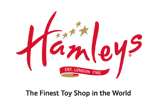 Computers in BankingComputers are everywhere in our lives. We use them to do our homework, to access the Internet, send emails and play games.  Why Use Computers?For information and efficiency. With reliable information, banks are better able to make the decisions that allow them to do their job – making good investments.  ...So, What Sort of Information?One of the main activities of financial firms is buying and selling shares. Those of you who play on the PIGGYBANK® Fantasy Stock Exchange™ will, of course, know this. In today’s market computers and technology are essential to the activity of trading shares. The daily value of shares traded across the London Stock Exchange (LSE) is in the billions, with many hundreds of thousand trades daily! New Banking Systems!I.T. experts have developed systems that can display many share prices in real time, showing share traders whether prices are going up or down, helping them to make a decision whether to buy or sell a share. These systems are also used to actually buy and sell the shares, in a few seconds at the click of a button, allowing traders to react quickly to changes in price and therefore, maximise their profits.  What Happened Before Computers?Trading was done mainly face-to-face in what were known as ‘open-outcry’ markets or pits or over the telephone. Doing business in this way was noisy, frantic, inefficient and prone to errors as traders and brokers made numerous deals verbally. As you can imagine, talking with several people, buying and selling shares and watching prices - all at the same time - could prove to be very tricky, but this is exactly the sort of thing computers can do with ease.  All Change!!!But all this changed in October 1986. The London Stock Exchange converted from an open-outcry market to an electronic exchange. This event was commonly known as the ‘Big Bang’ and meant fully automated electronic trading, increasing the speed and the volume of trading in London, and ensuring that London remained the world’s leading financial centre. So What’s the Difference?Why should we care if big banks and institutions become more efficient and make more money? Well, every time we put our savings into a bank account, these banks hold our money for us, and try to make more of it by trading shares and other financial instruments. We get some of this profit back in the form of interest! So the next time you put your money away for safe-keeping in a bank or building society, and you see you’ve been paid interest, just remember, a computer very much like the one you might have at home played a big part in making that money for you! |
| Home | City Talk | The Biz of Showbiz | Go to my FSE | About | Contact |
|
 |
| © 2006-2012 Piggybank Multimedia Limited, Under Licence. All Rights Reserved. Terms & Conditions | Website custom developed by Netfactors, London |











